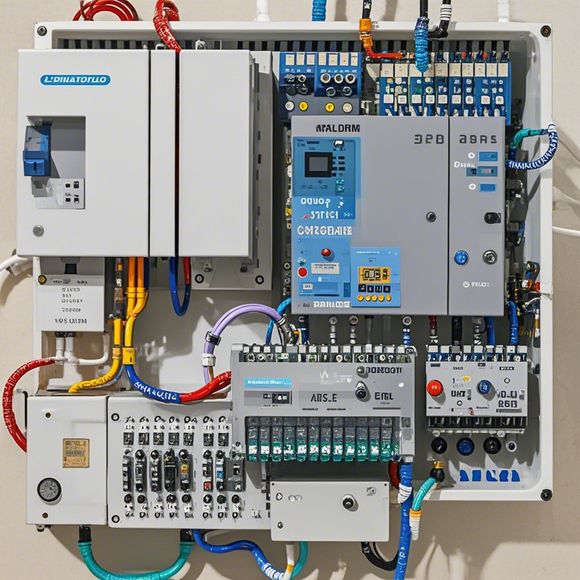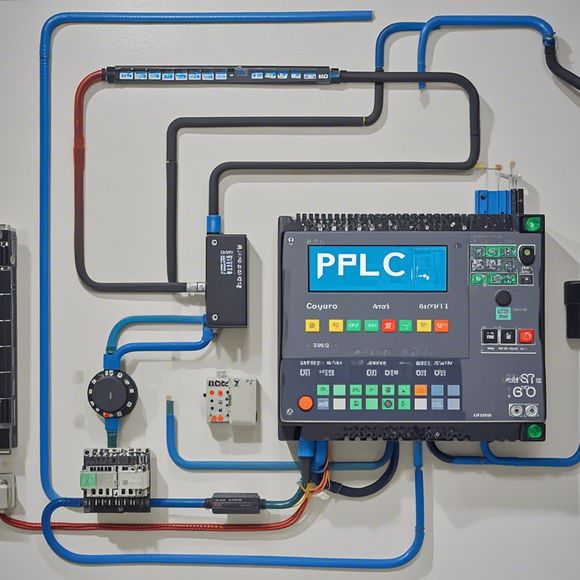What is a PLC (Programmable Logic Controller)?
A PLC, or Programmable Logic Controller, is a powerful electronic device designed for controlling and monitoring industrial processes. It's essentially a microprocessor with built-in software that can be programmed to perform specific tasks like switches, valves, motor controls, and sensor data processing. These devices are used in industries such as manufacturing, automation, and process engineering to ensure consistent, reliable performance, regardless of changes in production volume or equipment failures.
Introducing the world of industrial automation and control, where Programmable Logic Controllers (PLCs) reign supreme. These versatile tools are designed to manage and automate complex systems, making them indispensable for businesses that rely on precision and reliability in their operations. So, let's dive into what PLCs are, how they function, and why they have become such a crucial part of modern industry.

At its core, a PLC is a small computer system designed specifically for industrial applications. It's like having your own personal assistant in the factory - always ready to take care of tasks and make decisions for you. Unlike larger computers or mainframes, PLCs are compact, powerful, and can be easily customized to meet specific needs of any manufacturing or process control environment.
One of the most significant advantages of a PLC is its modular design. This means that each component of a PLC can be replaced or upgraded independently, making it easy for businesses to tailor their PLC systems to fit their evolving requirements. Whether you need a simple programmable logic controller for a small workshop or a sophisticated system for a large manufacturing plant, there's a PLC out there that can handle everything from basic counting to complex process control with ease.
Another key feature of PLCs is their ability to communicate with other systems within the factory. Thanks to their networked capabilities, PLCs can connect directly to computers, sensors, and actuators, allowing for seamless data flow and control over entire production lines. This not only makes it easier to monitor and maintain equipment but also reduces downtime and improves overall efficiency.
Of course, no discussion of PLCs would be complete without mentioning their role in safety. In many industries, including manufacturing, mining, and construction, PLCs are essential for ensuring safe working conditions and preventing accidents. By providing instant feedback and alarms, PLCs help operators identify potential hazards before they cause harm, enabling them to take corrective action quickly and efficiently.

When it comes to cost-effectiveness, PLCs offer some remarkable benefits as well. They are often more affordable than traditional analog or digital systems, especially when considering the longevity and reliability of these devices. Plus, with advancements in technology, PLCs are becoming even more energy-efficient and eco-friendly, making them an attractive option for businesses looking to reduce their carbon footprint.
So, if you're in the market for an efficient and reliable solution for your industrial operations, don't hesitate to consider a PLC. With its modular design, advanced networking capabilities, and wide range of applications, a PLC can transform your business and keep you ahead of the curve in today's fast-paced world. Remember, when it comes to automation, a little bit of PLC power can go a long way!
Content expansion reading:
Articles related to the knowledge points of this article:
PLC Programming for Automation Control in the Manufacturing Industry
How to Use a PLC Controller for Your Business
PLC (Programmable Logic Controller) Control System Basics
Plumbers Rule! The Role of PLC Controllers in the World of Waterworks
The Role of Programmable Logic Controllers (PLCs) in Foreign Trade Operations
PLC Controllers: A Comprehensive Guide to Understanding Their Prices